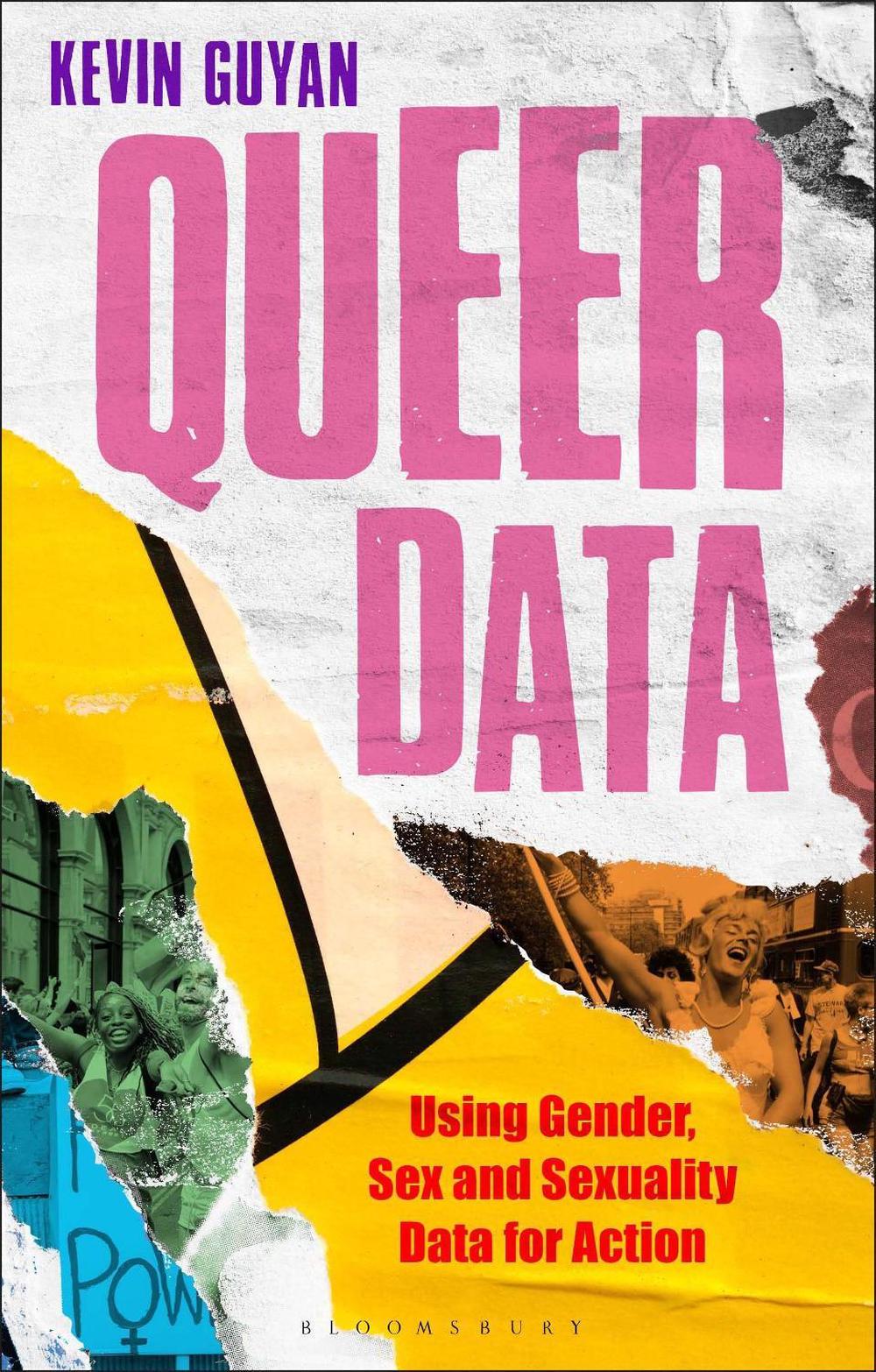
Queer Data
Using Gender, Sex and Sexuality Data for Action
$41.93
- Paperback
240 pages
- Release Date
9 March 2022
Summary
Data has never mattered more. Our lives are increasingly shaped by it and how it is defined, collected and used. But who counts in the collection, analysis and application of data?
This important book is the first to look at queer data – defined as data relating to gender, sex, sexual orientation and trans identity/history. The author shows us how current data practices reflect an incomplete account of LGBTQ lives and helps us understand how data biases are used to delegitimise the ev…
Book Details
| ISBN-13: | 9781350230729 |
|---|---|
| ISBN-10: | 1350230723 |
| Author: | Kevin Guyan |
| Publisher: | Bloomsbury Publishing PLC |
| Imprint: | Bloomsbury Academic |
| Format: | Paperback |
| Number of Pages: | 240 |
| Release Date: | 9 March 2022 |
| Weight: | 300g |
| Dimensions: | 214mm x 136mm x 14mm |
| Series: | Bloomsbury Studies in Digital Cultures |
You Can Find This Book In
What They're Saying
Critics Review
Kevin Guyan’s Queer Data, though not a quick read, is very comprehensible to an average reader and is absolutely chockablock with ways to understand how research is conducted and how it systematically discounts queer people (or counts us incorrectly, or codes us incorrectly, or…). If you ever do research on anything involving people—even something as minor as a brand-preference survey—you must read this, absolutely. But even the lay reader with no research aspirations will find so many ways to prove that their homophobic cousin Karen is just plain wrong. * Xtra Magazine *
[T]he book does an admirable job explaining the finer points behind the complicated constructs of sexual orientation and gender identity (SOGI) and drawing attention to nuances that make it difficult to precisely measure micro-minorities … the book is a welcome addition on a topic that currently lacks wide attention. Guyan poses provocative questions that practitioners should consider before embarking on research that focuses on sexual and gender minorities.
* Science Magazine *An accessible read, Queer Data is a must-read to understand why reliable data is necessary to ensure the improvement of everyday LGBTQ+ people, policies, and activist causes.
– One of Gay Times’ 10 Most Anticipated Books of 2022A brilliant study on how [data is collected] within the LGBTQ community… enlightening reading. * Publishing Scotland *Each of Queer Data’s sections provides thought-provoking debates and relevant dilemmas grounded in rigorous academic concepts and rich evidence from practice. In this sense, one of the book’s core strengths is how it intertwines complex scholarly ideas with concrete problems that practitioners and activists wrestle within their day-to-day work. * Harvard Educational Review *…Very comprehensible to an average reader and absolutely chockablock with ways to understand how research is conducted and how it systematically discounts queer people…If you ever do research on anything involving people—even something as minor as a brand-preference survey—you must read this, absolutely. But even the lay reader with no research aspirations will find so many ways to prove that their homophobic cousin Karen is just plain wrong. * Xtra Magazine *A refreshingly clear and practical take which cuts through turbulent discourse and offers a new way of looking at fixing inequalities and responding to threats facing the LGBTQI+ community.
* Emma Roddick, Member of the Scottish Parliament (MSP) *Committed to the project of changing the world for the better for Queer People, this book critically analyses the need to include LGBTQ people in policymaking. It’s enormously readable, theoretically informed and supported by evidence. * Julie Fish, Director of the Centre for LGBTQ Research, De Montfort University, UK *A unique, powerful call to action. Guyan boldly points out how queer data is ignored, ‘straightwashed’ or corrupted. It offers a way forward to engage with queer data to shape our own lived experiences. Highly recommended! * Drew Dalton, Senior Lecturer in Sociology and Programme Leader MSc Inequality and Society, University of Sunderland, UK *Zooming in on lesbian, gay, bisexual, trans, and queer (LGBTQ) rights, the book illuminates how increased knowledge about queer identities proves essential as a tool for action, which impacts decision making related to resource allocation, changes to legislation, access to services, representation, and visibility. * International Feminist Journal of Politics *This book undeniably deserves a place on your shelf and is a ‘must have’ for anyone in the academic field. * Journal of Cultural Analysis and Social Change *About The Author
Kevin Guyan
Kevin Guyan is an equality, diversity and inclusion (EDI) researcher based in Edinburgh, Scotland. He is currently Head of Knowledge and Research at Advance HE, a higher education agency that works to improve EDI for staff and students in universities and colleges in the UK.
Returns
This item is eligible for free returns within 30 days of delivery. See our returns policy for further details.




